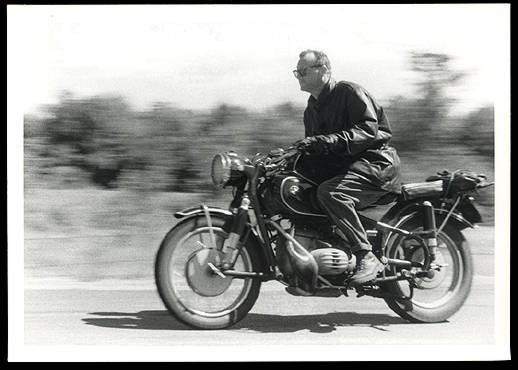John Barker reassesses C. Wright Mills' 1956 analysis 'The Power Elite', where Mills describes the "...historical development in which the economic and political power of the military, the militarisation of politics and the dominance of finance capital come together in a formation which may be distinguished from more general understandings of classical oligarchy or the ruling class." As Mills says: 'To use the acquisition of wealth as a sign of ability and then to use ability as an explanation of wealth is merely to play with two words for the same fact: the existence of the very rich'.

"C. Wright Mills was a tough-guy intellectual,
a sociologist with a heart condition who died
aged 46. He taught for many years and became
a professor at Columbia University. His book
The Power Elite was first published just over fifty
years ago in 1956. Its original working title had
been The High and Mighty and in the same year
the book was published Wright Mills gained a
factory diploma as a first class mechanic on BMW
motorbikes. His book describes the emergence
of an elite in the USA which began in World
War II and developed through ‘revolving doors’
between military, corporate and political elites
with the media functioning as an increasingly
important component in the institutionalisation
of the Cold War. The Power Elite is exemplary
of the methods Mills described in his essay On
Intellectual Craftsmanship1, an investigative how-to
kit based on use of the file. In that pre-computer
age cardboard folders or boxes were the places to
collect material such as news clippings, excerpts
from books, statistics, scraps of conversation, ideas
or fringe thoughts and, most importantly, notes
on follow-up ideas for the development of themes
and to shift perspectives between them. These last
functions were what Mills called the sociological
imagination. In keeping with dialectical method,
The Power Elite completed a trilogy of works
examining different class perspectives in the
United States. In his series, Mills grasped at
the social whole, a philosophical concept he
would defend against the charge of ‘extremist
exaggeration’. The same sense of investigative
scope looks especially relevant today, when a
variety of socio-political critiques appear to
operate in parallel universes of stand-alone theory."
"The High and Mighty" by John Barker
Variant 30 Winter 2007




No comments:
Post a Comment